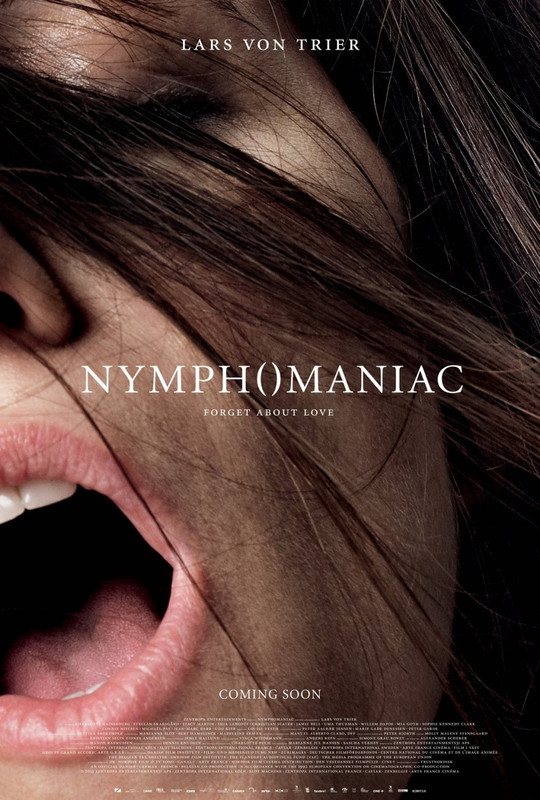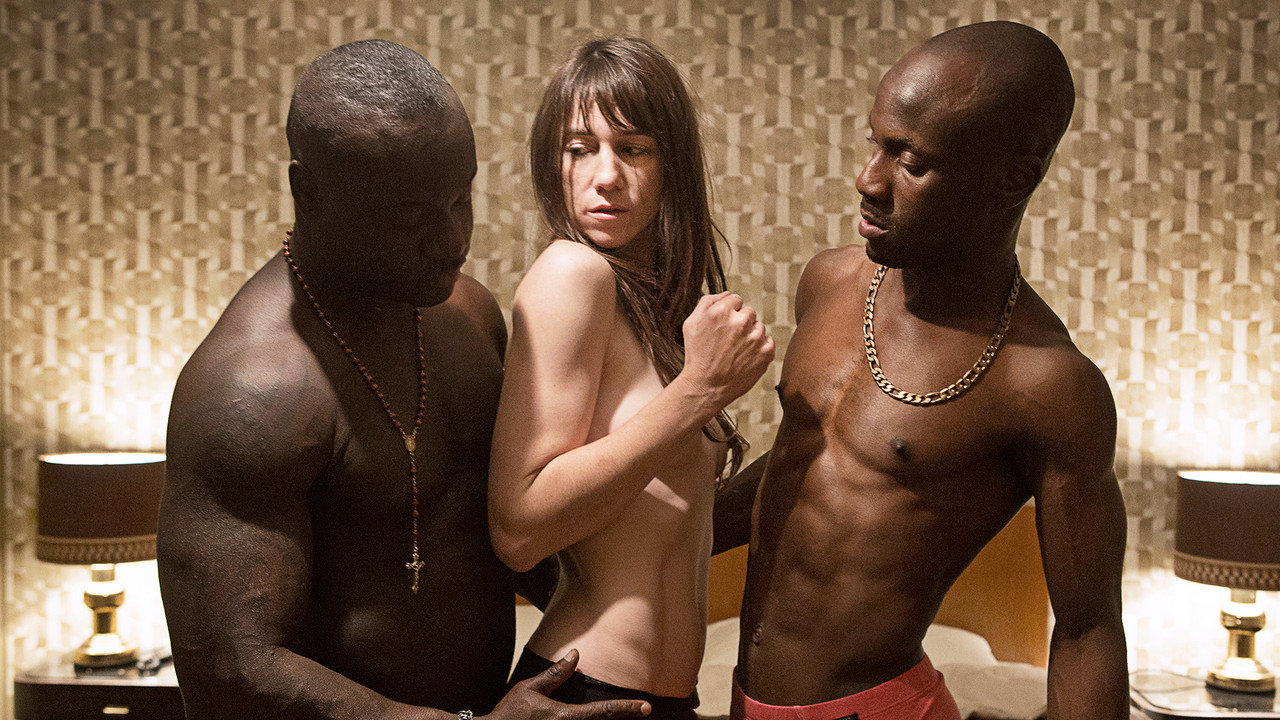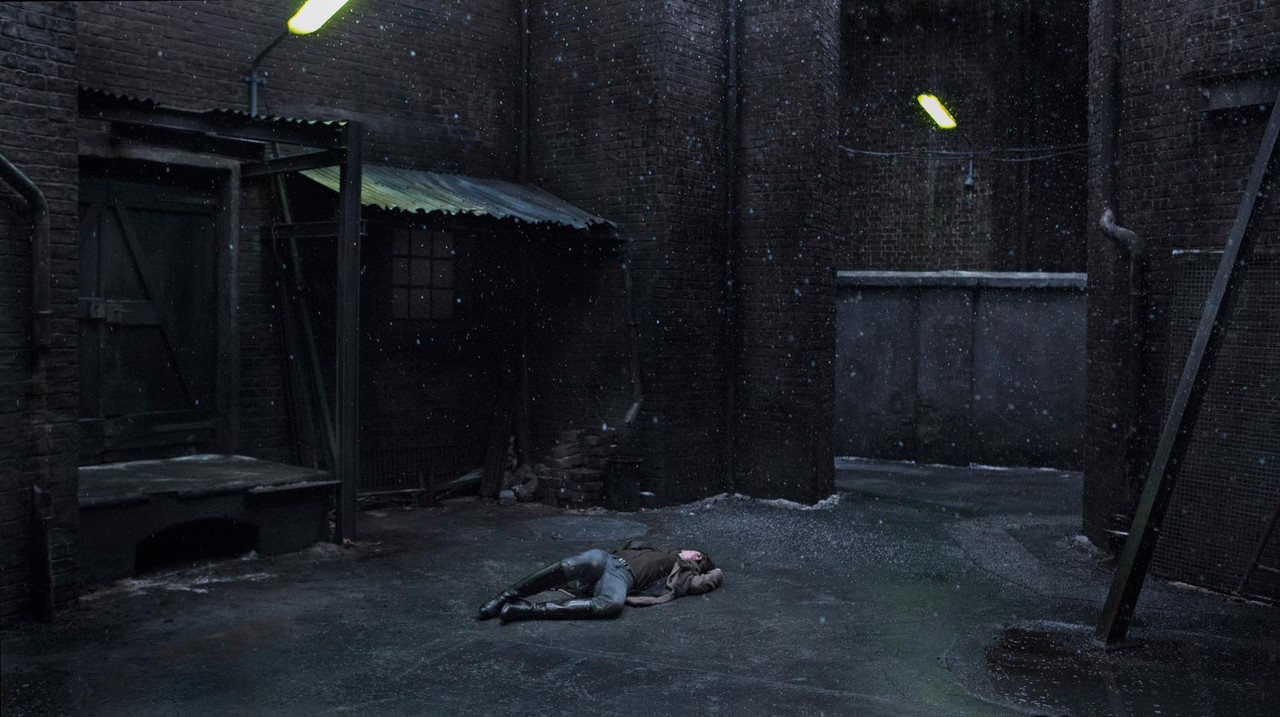Dir: Lars Von Trier
I have never found Lars Von Trier to be an especially consistent filmmaker, but when he finds form his work can be dazzling; challenging and exciting in a way that few directors today ever are. This has certainly been true of his most recent series of films, the depression trilogy which, following Antichrist and Melancholia, now comes to a close with the colossal Nymphomaniac.
Across, in this shorter version, four hours and two volumes Nymphomaniac tells the story of Joe (played from 15 to 30 by newcomer Stacy Martin and from 30 to 50 by Charlotte Gainsbourg). We find her lying in the street, beaten up. Seligman (Stellan Skarsgaard) stumbles across her and, when she insists that he not call an ambulance, takes her to his home to recover. There Joe relates, in eight chapters, the story of her life as a nymphomaniac, which she believes will lead Seligman to judge her a bad person.
There is always the question of how seriously we are to take anything that Lars Von Trier says or does, but Nymphomaniac comes loaded with more questions than that. Is this four hour version something Von Trier is happy with? Are we intended to see this as one long film or two distinct entities? Is Von Trier trying to make art or porn? Typically for its director Nymphomaniac makes none of these questions easy to answer. That being the case you should consider this a review of the experience of seeing the two parts of this film back to back. Having done so I'm sure that it will be a different experience viewing them separately, and I suspect doing so may benefit the films.
There are a couple of surprises about this version of Nymphomaniac (Von Trier's 5 ½ hour director's cut will likely see a Blu Ray release later this year), but the biggest is perhaps how playful and how funny it is. Even at the film's most pretentious - and boy can it get pretentious - Von Trier's cutting and his dialogue often demonstrate a dry as dust wit, which can cut through the moments that might otherwise see you shake your head and mutter 'oh, Lars'. For instance; Seligman often interjects in Joe's story, and at one point, just as I was inwardly sighing at another of his monologues in Volume 2, Joe told him “I think that was your most annoying interruption yet”. The fact Von Trier seems to anticipate this criticism doesn't entirely defuse it, but this wry self-awareness is present and welcome throughout. Seligman's interjections can be funny, but they are rather on the nose. The fly fishing metaphor of the first chapter is amusing, but playing the same trick on different themes for four hours becomes seriously wearing by the midpoint of volume 2. This is one of several ways in which the films might, for me, work better apart from one another.
Throughout both volumes, Nymphomaniac essentially unfolds as two linked films; one a two hander, set in a single room, as Gainsbourg's older Joe tells her story and has discussions with Seligman, the other a series of flashbacks taking Joe from her discovery, at two, of her c**t right up to the film's opening image, when she is 50. Both sides have moments that are great and moments that are infuriating, but for me, the flashbacks work more consistently.
The big question of this film was always whether Von Trier could find someone who could convince as a younger Charlotte Gainsbourg as, from her look to her soft and soothing voice, Gainsbourg is one of the most distinctive (and for my money one of the best) actresses working. Stacy Martin doesn't so much look like a young Gainsbourg as she does an absurdly beautiful melding of Gainsbourg's features with those of her mother, Jane Birkin, but what she gets right is the essence of the actress and especially the voice, which has that distinctive delicacy that is so present in the film through Gainsbourg's voiceover. Outside of comparisons to her elder counterpart, Martin, in her first film, delivers an exceptional performance. She has a way of delivering Joe's emotional detachment without her performance being empty. She's especially good in what is easily Volume 1 and the film's best scene; as Uma Thurman whips up an emotional whirlwind around her Martin silently conveys Joe's alienation from, discomfort with and lack of understanding of these emotions. When, particularly as Joe loses her one expression of feeling, Martin is called on to dig into emotional reserves, she delivers brilliantly. The last shot of volume 1 is searing and painful thanks to her.
Charlotte Gainsbourg's side of the central performance is just as impressive. Her Joe seems more fragile as if age and experience have made her brittle. There is certainly more bitterness in her in this older incarnation, some justifiable, some less so, but she is recognisably the same woman. Having given us two depictions of depression that manifested themselves in very visible ways; Antichrist's violence and Melancholia's panic, Gainsbourg here shows a much more reticent kind of depression. Joe seems to operate at one remove from the world; her sexuality the only way she knows - perhaps cares - to connect with it. Her brilliance here lies not in the searing, screaming, pain of loss as it does in Antichrist but in something much smaller and ultimately harder to understand. Gainsbourg's side of the film is sadder, more reflective, but she does get to engage in some of its funnier moments, as when a proposed threesome degenerates into an argument between the two men. Her voiceover means that Gainsbourg remains a presence even in the earliest of the flashback scenes, and does a great deal to tie the two portrayals of Joe together. It's also just wonderful to listen to, communicating much about Joe's inner life with a rather poetic turn of phrase, not to mention a voice I would happily hear read the phone book.
The supporting cast is eclectic and the performances are as mixed as you might expect. Perhaps the film's biggest downfall is the performance of Shia La Beouf. I respect the fact that he's trying to stretch himself now, rather than turn back to the blockbusters that made his name (and, let's face it, an amount of money that allows him that choice), but he's pretty terrible as Jerome; the most important lover in Joe's life. The problem is twofold. First of all, for a character who has a lot of screen time, Jerome is frustratingly thinly developed. He seems to behave in ways that serve the plot rather than tracking as a real character. This too is something Von Trier jokes about, even implying that Joe may be lying about some of the times that she refers to Jerome, perhaps subbing him in for someone else because it's more interesting to do so. The second issue is LaBeouf's accent. The film seems to be set in England, but it's so non-specific that there is no reason that Shia had to attempt the abysmally poor, inconsistent, woefully generic, 'English' accent he does here. Let's just say that Dick VanDyke may now be forgiven.
There is much better news among the supporting cast, Christian Slater is very good as Joe's father (though the fact he stubbornly refuses to age is a little jarring in his last scenes, moving though they are). Jamie Bell also impresses as a BDSM specialist that the older Joe sees. He's almost completely devoid of personality, but Bell makes this interesting rather than frustrating. I found myself asking the same questions as Joe does; who is this man and what does he get out of his 'work', which we never see that he is paid for? In a smaller role as a friend of young Joe's, Sophie Kennedy Clark puts in a provocative turn in the film's opening chapter, instigating the memorable scene in which her character B and Joe compete to see who can fuck the most men on a train journey and so win a bag of chocolates. On the downside there is Mia Goth, who has a large part in the film's closing chapter but, while beautiful, is deadly dull and puts almost no expression into her lines. The film is very nearly stolen, however, by the barnstorming one scene performance of Uma Thurman, which has to be seen to be believed and should, in a world where there is justice, already be a front runner for next year's supporting actress awards.
Lars Von Trier's style as a director is constantly mutating and while Nymphomaniac has moments that recall the incredibly designed beauty of Antichrist and Melancholia (the opening shot, older Joe finding her 'soul tree' and many more) it also has a grittier and more mobile camera style at times. This apparently comes out of Von Trier's non-proscriptive atmosphere on set, not blocking the scenes in advance and tasking the camera to follow the actors rather than vice versa. This is perhaps best seen, again, in Uma Thurman's one scene, which has a chaotic but cohesive visual feel. Perhaps the most notable thing about what Von Trier does here is the way that, like his main character, he appears to be reflecting on his life. References to his earlier work litter the film. I'm sure I didn't pick up on all of them but a major plot point of Breaking the Waves is echoed, the opening scene of Antichrist is recreated almost shot for shot and that film's fox also makes a brief cameo in the films most broadly comic scene. Beyond reflection what Von Trier is saying about how he views this earlier work is never quite clear; perhaps that is what the debate between Joe and Seligman is really about for him, but it's a typically mischievous touch from the director.
Explicit as it is, Nymphomaniac is almost studiedly unsexy. Part of Joe's story is how her endless sexual activity ends up being unfulfilling and making her numb both physically and mentally. For its part, the film seems determined to make you feel the physical side of that numbness and it largely succeeds. Most of the sex is mechanical (in a funny touch the thrusts when Joe loses her virginity are counted out on screen) and even when it's explicitly shot Von Trier's camerawork is so matter of fact. The signifiers that Hollywood uses to tell you 'this is a sexy scene' are all absent. It's all very effective in plugging you into Joe's experience. That all said, I must confess I found one scene in the last chapter to be an exception to this rule, and I suspect most people will have one or two scenes where they find this to be the case.
Though my interest began to flag towards the end of the film, as I began to tire of the heavy metaphors discussed between Joe and Seligman, the film's only major storytelling misstep for me is its coda. Even in a film that feels as frequently on the nose as this one, that last sequence bothers me because while Nymphomaniac can be groan-inducingly obvious it is never, until that moment, cheaply shocking. I'll just say that I wish the cut to black had come a couple of minutes earlier and leave it for you to discover what I mean and whether you agree.
As an experience, Nymphomaniac is certainly a singular piece of work and often an exercise in contradiction: pretentious and hilarious; endlessly provocative and explicitly unsexy; artfully composed and messy as hell; rigorous and mischievous. Viewed as a whole it loses steam, but that may not mean that Volume 2 is a worse film, simply that at four hours it is exhausting. This isn't a great film by any means, but it's a vital and exciting one, I'm glad it exists and for all its flaws it is essential viewing.
★★★
★★★




No comments:
Post a Comment